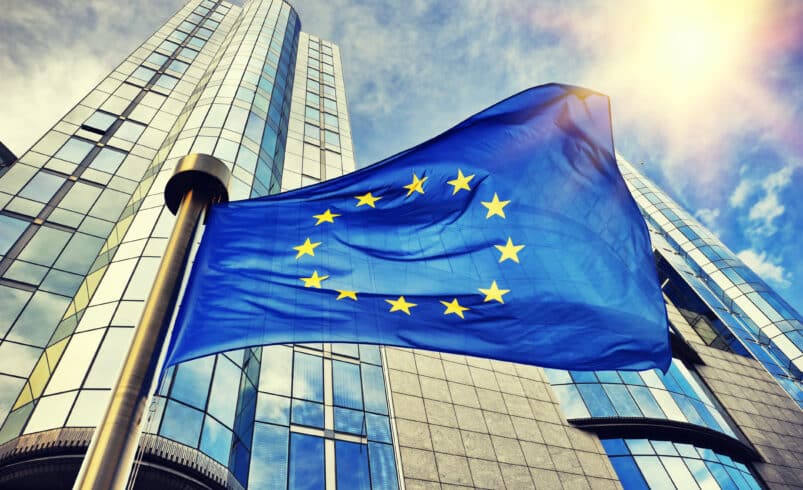EU Unveils Landmark AI Act: Balancing Innovation and Regulation

Key Insights:
- EU AI Act bans biometric profiling, mandates AI transparency, ensures ethical use, and safeguards privacy rights.
- The Act addresses systemic risks in powerful AI models, aligning tech advancement with public safety and ethical standards.
- EU positions itself as a global AI regulatory leader, influencing worldwide standards and fostering responsible AI development.
With the AI Act’s finalization, the European Union has reached a pivotal moment in artificial intelligence governance. This comprehensive legislation, crafted after extensive deliberation among the EU’s primary legislative bodies, aims to establish a regulatory framework for AI that prioritizes ethical considerations, transparency, and the protection of fundamental human rights.
A Closer Look at the AI Act’s Provisions
Central to the AI Act are several vital regulations. The Act prohibits the use of biometric systems that identify individuals based on sensitive characteristics like sexual orientation and race. It also restricts the indiscriminate collection of facial images from the internet, underscoring a strong commitment to privacy and anti-discrimination.
Additionally, the Act introduces strict transparency requirements for general-purpose AI models, such as OpenAI’s GPT-4, ensuring that their deployment is both responsible and accountable.
The Act imposes regulations on “compelling” AI models to mitigate systemic risks, balancing the need for technological advancement with public safety and ethical considerations. Law enforcement is permitted limited use of biometric identification in public spaces, reflecting a nuanced approach to balancing security with civil liberties. The Act’s various provisions are scheduled to be implemented in stages, with the bans becoming effective in six months, transparency requirements within a year, and the entire Act reaching full enforcement in approximately two years.
Impact and Implications for the AI Industry
This groundbreaking legislation is a testament to the EU’s proactive approach to shaping the trajectory of AI development. It aims to foster innovation while guarding against AI technology’s potential abuses. Notably, the Act includes measures to protect the rights of copyright holders, and demands increased transparency regarding the energy consumption of AI systems.
The AI Act has elicited mixed reactions across the industry. Some stakeholders in the AI sector express concerns that the regulations may impede innovation, particularly within Europe’s growing AI industry. However, European policymakers, including Commissioner Thierry Breton, perceive the Act as a pioneering initiative that cements Europe’s role as a global leader in AI regulation.
The Evolving Landscape of AI Technology and Regulation
The journey to the AI Act’s finalization reflects AI technology’s dynamic and rapidly changing nature and societal implications. The introduction of OpenAI’s ChatGPT last year notably shifted the regulatory conversation, highlighting new challenges and ethical considerations in AI development. This development influenced the Act’s negotiation process, underscoring the need for robust and flexible regulatory frameworks.
Europe Leads the Way in Global AI Governance
The EU AI Act is not merely a regional regulatory framework; it is poised to influence global standards for AI governance. The Act’s comprehensive approach to issues ranging from privacy and transparency to ethical AI deployment positions Europe as a frontrunner in the international discourse on AI regulation. As AI technology advances, this legislation provides a foundational structure for addressing emerging challenges and harnessing AI’s potential benefits.
Europe’s commitment to aligning AI development with fundamental values such as human dignity, privacy, and fairness is evident in the AI Act. This landmark legislation is set to reshape the AI industry, potentially inspiring similar regulatory efforts worldwide. The global community now looks to Europe as it implements this pioneering Act, setting a precedent for how AI can be ethically governed in the digital age.
With the finalization of the AI Act, the European Union has taken a decisive step in establishing a regulatory framework that balances innovation with ethical responsibility. This Act represents a significant milestone in the journey towards responsible and human-centric AI, marking a new chapter in the global conversation on artificial intelligence.
DISCLAIMER: It's essential to understand that the articles on this site are not meant to serve as, nor should it be construed as, advice in legal, tax, investment, financial, or any other professional context. You should only invest an amount that you are prepared to lose, and it's advisable to consult with an independent financial expert if you're uncertain. To obtain more information, kindly examine the terms of service and the assistance and support resources made available by the issuing or advertising entity. Our website is committed to delivering accurate and unbiased news, yet it's important to note that market conditions may change rapidly. Also, be aware that some (but not all) articles on our site are compensated or sponsored.








